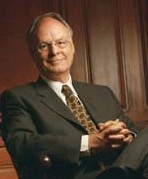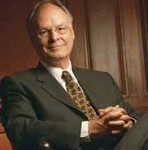Americans take it for granted today that politicians are going to go to great lengths to “connect” with the public: with grip and grin photo ops, visits to local diners, talk show appearances, or just by dropping pop culture references.
They are just like us, they insist, even in the face of all contrary evidence.
We often associate this phenomenon with Andrew Jackson’s active campaigning, or Lincoln’s log cabin legend, or Reagan’s reputation as the “great communicator.”
T.H. Breen sees it a little differently.
Breen, an esteemed scholar of early American history, spoke in Williamsburg Monday about George Washington’s place in shaping a political process that demands our leaders connect with the people.
Yes, argued Breen, the man with the false teeth and “diffident, often stoically awkward” personality, actually set the tone for how presidents collect public opinion and “opened the door to open democracy.”
“Instead of running away from change,” said Breen, “he figured out how integrate public opinion.”
Washington took office as president in March 1789 after being elected unanimously by the Electoral College. Such popularity hardly seemed to merit so much as a nod to a populace that had already so clearly been won over.
Breen credits George with having a unique insight about retail politics in the new nation.
“Without prodding from his more bookish colleagues—Adams, Madison, Jay and Hamilton-the president of the United States came to appreciate, perhaps more than they, that a person who owed his office to the people, whose very claim to authority derived from the people, had to make himself accessible to the people.”
“It was this insight, this sense of responsibility,” said Breen, “that compelled Washington—literally—to take to the road.”
It began with a memo in his first year in office. In it Washington wondered whether “it would not be advantageous to the interests of the Union for the president to make a tour of the United States, in order to become acquainted with the principal characters and internal circumstances as well as to be more accessible to numbers of well-informed persons, who might give useful information and advices on political subjects.”
This set in motion a series of journeys that Washington would take from 1789-91, landing him in every one of the thirteen original states.
Vice President John Adams was dubious about the trip, expressing concern about the government’s operation with the chief executive absent.
Every action Washington took as president established a precedent. As the first executive of the new republic, all was new. The simplest processes had to be invented. Many are still with us today.
What to call the executive? “Your highness?” “Your excellency?” No, “Mr. President” would be suitable for a republic, a title respectful but not pompous. And it is still.
His decision to stop at two terms was the unwritten rule for presidents until FDR sought a third term during the Second World War. At that point it was determined that the rule should be written—into the Constitution—to make sure it didn’t happen again.
“My station is new. I walk on untrodden ground,” wrote Washington to the English historian Catharine Macaulay in 1790.
Breen argued that Washington’s journeys helped to bind the nation together at a fragile time.
By taking in his person the federal government to the people, he helped ordinary men and women understand that the nation “had to be more than the sum of its parts to survive as a republic.”
As the president traveled the country’s highways, such as they were, he encountered one crowd after another, “spontaneous celebrations in town after town.” He was feted with organized dinners, militia escorts and illuminations.
“This,” said Breen, “is testimony to the fact that the people were telling Washington how he fit into their story about the new country.” Washington’s “true charisma” was his embodiment of the hopes and aspirations of “a newly empowered public.”
Breen said that Washington’s “journey to America” was not the “curious but ultimately marginal event” historians have long considered it, but nothing less than the third instance in which Washington saved the country from falling apart.
The first two, well known to most students of the Revolution, were in keeping the diverse and undersupplied Continental Army together, and his squashing of the Newburgh Conspiracy.
The journey through the states, Breen reckons, saved the United States by overcoming the tendency toward “debilitating, narrow, selfish localism.” And that, he says, is the lesson we should take to heart today.


Leave a Reply